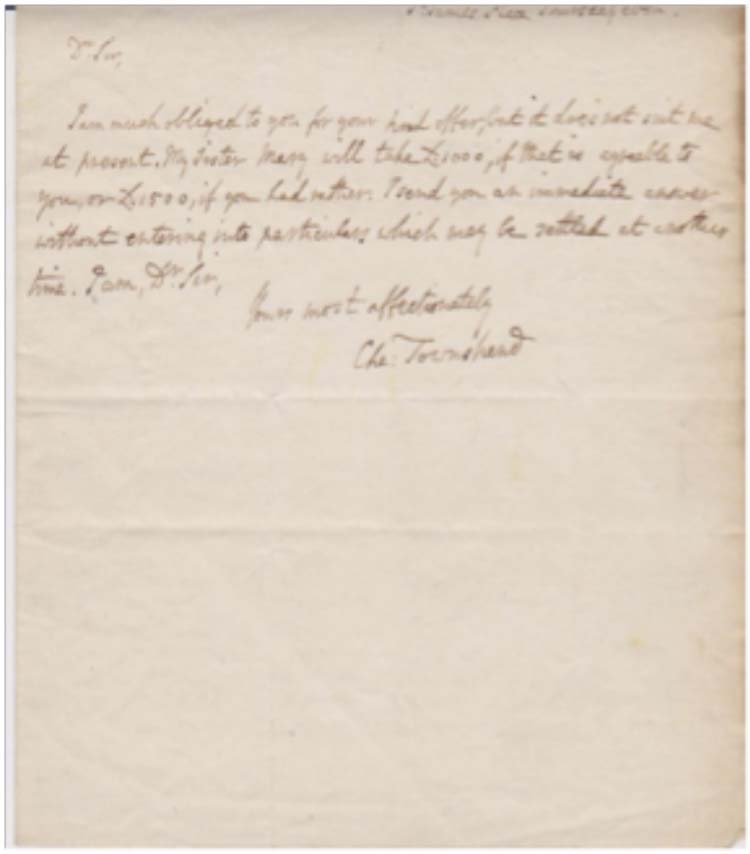

1. From George, 1st Lord Lyttleton.
2. From Rev John ‘Orator’ Henley.
5. From George James (‘Gilly’)Williams..
8. From Madame La Marquise de Stainville.
9. From Charles Townshend, n.d..
15. From Mr. Rogers
Selwyn 9: From Charles Townshend.
There are a number of letters from the Townshend family, the most notable member of which was this Charles; politician and wit.
Charles Townshend, 1725-1767, chancellor of the exchequer, was born on 29 August 1725. He was the second son of Charles, third viscount Townshend by his wife Etheldreda or Audrey (d. 1788), daughter of Edward Harrison of Balls Park, Hertfordshire. His mother was ‘celebrated for her gallantries, eccentricities, and wit’. Walpole descibes Townshend thus:'His figure was tall and advantageous, his action vehement, his voice loud, his laugh louder' On 2 August 1766 Townshend was appointed chancellor of the exchequer and on 16 January 1767, he presented his first budget. It included the usual land tax of four shillings in the pound; but his rivals, Grenville and Dowdeswell, combined to defeat it and reduce the tax to three shillings. Their motion was carried by 204 to 188 votes, and, according to long-standing precedent, a ministry defeated on a money bill should have resigned. Instead, Townshend set to work to devise means for meeting the deficiency of half a million thus created. Soon after, Townshend introduced his measures for dealing with America. The legislative functions of the New York assembly were to be suspended; commissioners of customs were to be established in America to superintend the execution of the laws relating to trade; and a port duty was imposed on glass, red and white lead, painters' colours, paper, and tea. The Americans received the news of these proposals with a burst of fury; anti-importation associations were formed, riots broke out, and the loyalist officials were reduced to impotence. Townshend did not live to see these developments. In July the city of London conferred its freedom upon him for his behaviour on the East India bill, and on 4 September he died, at the premature age of forty-two, ‘of a neglected fever.’

The letter reads: [Recto]
"St. James's Place Thursday eveng
Dr Sir
I am much obliged to you for your kind offer, but it does not suit me at present. My sister Mary will take £1000, if that is agreeable to you, or £1500 if you had rather. I send you an immediate answer without entering into particulars which may be settled at another time. I am Dr Sir
Yours most affectionately
Cha: Townshend."
[Verso]
"To George Selwyn Esqr
Chesterfield Street."
[In another hand] Selwyn's nephew. [In appears that in fact it was Charles's father who was Selwyn's nephew]
Note: I can find no reference as to this loan or the reason for it. (AC)